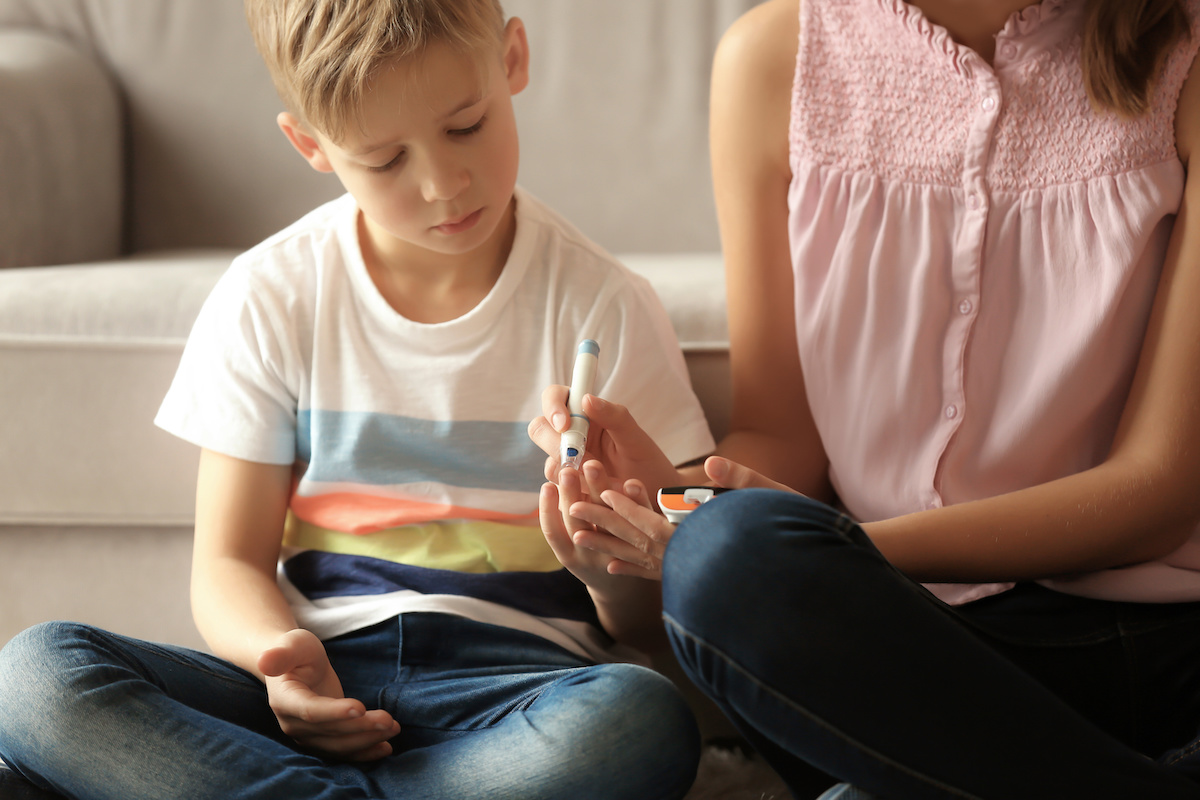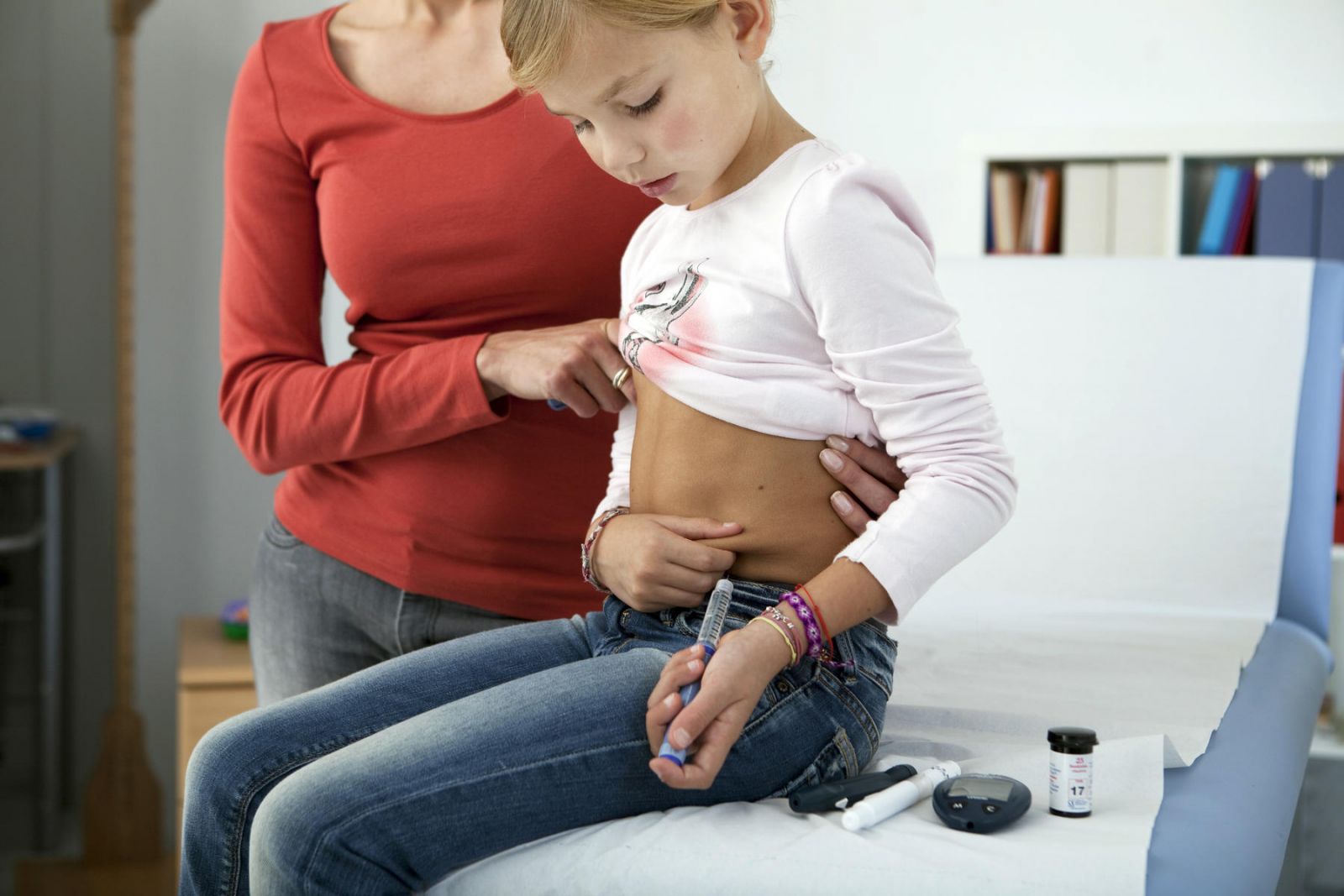BREAKING! COVID-19 And Children: UK Researchers Warn That COVID-19 Could Be Linked To Onset Of Type One Diabetes And Diabetic Ketoacidosis In Children
Source: COVID-19 And Children Aug 21, 2020 5 years, 4 months, 2 weeks, 6 days, 7 hours, 31 minutes ago
COVID-19 And Children: Although children infected with the SARS-CoV-2 coronavirus seems to either appear asymptomatic or merely experience mild symptoms, worrying emerging studies are causing a concern that besides multi-inflammatory syndrome disease or MIC-C that could manifest much later after infection, the virus could be in the meanwhile be affecting children in a variety of ways, one of which it triggers the onset of type 1 diabetes in children and also diabetic ketoacidosis.

A research team from Imperial College Healthcare NHS Trust and Imperial College London has discovered a link between COVID-19 and new-onset type 1 diabetes in children.
The study findings are published in the journal
Diabetes Care.
https://care.diabetesjournals.org/content/early/2020/08/13/dc20-1551
Research and clinical data on new-onset type 1 diabetes during the coronavirus pandemic, particularly in children, is limited. A growing body of evidence has suggested the autoimmune disease may develop alongside the virus.
In order to arrive at their findings, the UK researchers studied patients at four North-West London NHS Trusts, some of which have reported increased diabetes admissions.
Interestingly, thirty children in hospitals across the north-west London area presented with new-onset type 1 diabetes during the peak of the COVID-19 pandemic, which is double the number of cases usually seen in this period in previous years.
As per protocols, any child admitted with COVID-19 symptoms, such as cough and fever, was tested for the coronavirus. Of the 21 who were tested, two tested positive, while of the 16 children who were tested for antibodies against SARS-CoV-2 to determine the previous exposure, three were positive. Overall, five children with new-onset type 1 diabetes had been infected with SARS-CoV-2.
Supervising author of the study, Karen Logan, Honorary Research Associate at Imperial College London, Clinical Nurse Specialist at Imperial College Healthcare NHS Trust said, "It appears that children are at low risk of developing serious cases of COVID-19. However, we do need to consider potential health complications following exposure to the virus in children."
The study team's analysis shows that during the pandemic peak, the number of new cases of pediatric type 1 diabetes is unusually high in two of the hospitals, compared to the previous years.
The team investigated further and found that some of the children with the new diagnosis of diabetes had active coronavirus infection or had antibodies showing they had been infected in the past.
She added, "The team believes this study is the first to show a potential link between COVID-19 and the development of type 1 diabetes in some children. Our study was limited to one UK region, and more research is needed to establish whether there is a definitive link between the two, but in the meantime, we hope clinicians will be mindful of this potential link.”
The study team stressed that during the peak of the outbreak, widespread testing was not available, so there may be children who have type 1 diabetes that were not tested for COVID-19.
In addition, the team
revealed that 70 percent of the children with newly diagnosed type 1 diabetes in the study exhibited Diabetic Ketoacidosis (DKA), a serious and life-threatening condition that occurs in people with diabetes if the blood insulin levels are too low. It happens when the body starts breaking down fat at a rate that is too fast, and in turn, the fat turns into ketones, causing the blood to become acidic.
Diabetic Ketoacidosis or DKA leads to many complications, including damage to the kidneys, the fluid inside the lungs, inflammation of the brain, and hypokalemia or low levels of potassium in the body.
https://www.thailandmedical.news/news/covid-19-research-updates-chinese-study-reveals-that-hypokalemia-present-in-almost-all-covid-19-patients
Significantly, more than 52 percent of the children had severe DKA, and the researchers that this is way higher than that from previous years.
Typically type 1 diabetes, also known as juvenile diabetes or insulin-dependent diabetes, is a long-lasting condition wherein the pancreas produces little or no insulin, which is a hormone essential for allowing sugar or glucose to enter cells to produce energy.
It is known that type 1 diabetes causes damage to the pancreas, particularly insulin-producing cells, preventing the body from producing enough insulin to maintain and regulate blood glucose levels. If the blood glucose levels are too high, it can lead to complications, including delayed wound healing, damage to the eyes, and even kidney impairment.
Interestingly, reports from China and Italy, which had been two of the first countries that experienced high numbers of COVID-19 cases early in the pandemic, have shown that some children have developed diabetes.
The study team aimed to determine if new cases have been reported in the UK, and if these are related to COVID-19 exposure.

Although the current data does not prove a direct link, the study team believes that the significant rise in cases during the pandemic suggests that there is a possible link. They recommend further research and analysis to establish a definitive link between COVID-19 and new-onset type 1 diabetes.
It should be noted that already numerous other reports are indicating that COVID-19 also triggers diabetes in adults.
https://www.thailandmedical.news/news/breaking-medical-experts-warn-that-covid-19-could-trigger-diabetes-in-otherwise-healthy-individuals-who-never-had-the-condition-before-
https://www.thailandmedical.news/news/breaking-covid-19-endocrine-system-new-study-shows-that-sars-cov-2-damages-the-endocrine-system
https://www.thailandmedical.news/news/breaking-diabetes-and-covid-19-german-case-study--confirms-that-sars-cov-2-can-trigger-diabetes-in-young--adults-otherwise-healthy
https://www.thailandmedical.news/news/covid-19-research-cases-of-covid-19-patients-developing-diabetes-for-first-time-can-be-due-to-high-ace2-expression-in-pancreatic-islet-cells-during-in
For more about COVID-19 And Children, keep on logging to Thailand Medical News
Help! Please help support this website by kindly making a donation to sustain this website and also all in all our initiatives to propel further research: https://www.thailandmedical.news/p/sponsorship
All donations of value US$50 to US$100 will also receive complimentary therapeutic teas that can be useful in this COVID-19 era. https://www.thailandmedical.news/news/new-therapeutic-teas-

